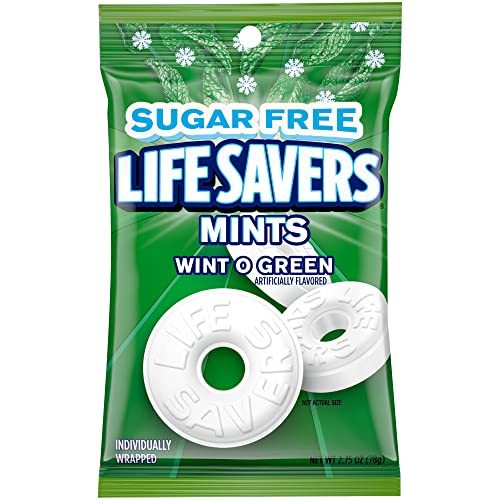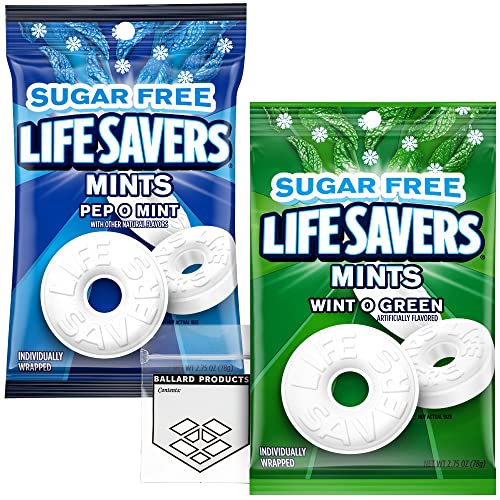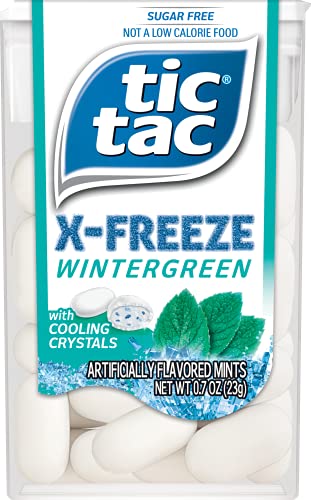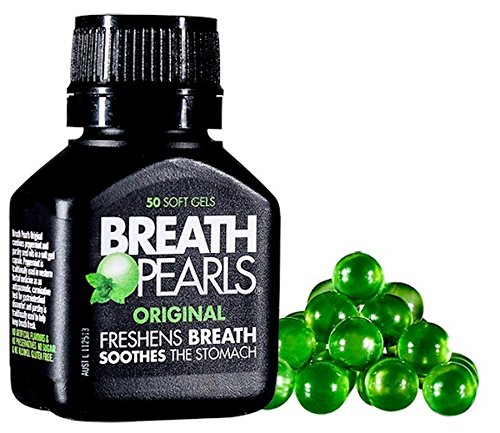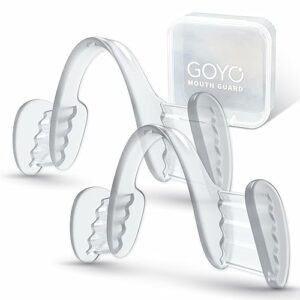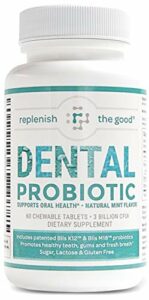Are you a fan of sugar-free mints? We certainly understand the appeal – they offer a refreshing burst of flavor without the guilt of added sugar. But have you ever wondered if these mints are truly good for your teeth? We know that dental health is important to you, so in this blog post, we delve into the fascinating world of sugar-free mints and their impact on your dental well-being. Join us as we explore the pros and cons, and uncover the truth behind this popular oral care product.
Indulge guilt-free with our top-selling sugar-free mints
What are sugar-free mints?
Sugar-free mints are a popular alternative to regular mints that contain sugar. These mints are specifically designed to provide a refreshing burst of flavor without the added sugar content. They are often sweetened using artificial sweeteners or natural sugar substitutes like xylitol or stevia. Sugar-free mints come in various shapes, sizes, and flavors, just like their sugary counterparts.
How Do Sugar-Free Mints Differ from Regular Mints?
The main difference between sugar-free mints and regular mints lies in their sweetening agents. While regular mints rely on sugar to create their sweet taste, sugar-free mints utilize alternative sweeteners to achieve a similar effect. Here are the key distinctions:
- Sugar Content: Regular mints contain varying amounts of sugar, which can contribute to tooth decay, weight gain, and other health issues. Sugar-free mints, on the other hand, contain little to no sugar, making them a healthier choice.
- Calorie Count: Since sugar-free mints have lower or no sugar content, they are generally lower in calories compared to regular mints. This can be beneficial for those watching their calorie intake as part of a balanced diet.
- Dental Health: Sugar is a primary culprit in tooth decay. By opting for sugar-free mints, you can enjoy the fresh breath and oral sensation without worrying about the negative effects of sugar on your teeth.
- Blood Sugar Impact: For individuals with diabetes or those trying to manage their blood sugar levels, sugar-free mints offer a viable option. The absence of sugar in these mints helps avoid spikes in blood glucose levels.
Why Choose Sugar-Free Mints?
There are several reasons why people choose sugar-free mints over their sugary counterparts. Here are some key benefits:
- Dietary Restrictions: Sugar-free mints are an excellent choice for individuals who are following a low-sugar or sugar-free diet. They provide a guilt-free option for satisfying cravings or freshening breath.
- Weight Management: As sugar-free mints are typically lower in calories than regular mints, they can be a useful tool in managing weight or maintaining a healthy lifestyle.
- Oral Hygiene: Sugar-free mints can help maintain good oral hygiene. They stimulate saliva production, which aids in washing away bacteria and food particles that can lead to bad breath and dental issues.
- Diabetes Management: For individuals with diabetes, sugar-free mints offer a way to enjoy a sweet sensation without negatively impacting blood sugar levels.
- Overall Health: Reducing sugar intake has numerous health benefits, including improved energy levels, better skin health, and decreased risk of chronic diseases like obesity, diabetes, and heart disease.
In conclusion, sugar-free mints offer a refreshing and satisfying alternative to regular mints that contain sugar. Whether you have dietary restrictions, are watching your weight, or simply want to promote oral health, sugar-free mints can be a great addition to your daily routine. So go ahead, grab a pack of sugar-free mints and enjoy the fresh taste without the guilt!
Effects of sugar on teeth
Sugar is a common ingredient in many of our favorite treats, but did you know that it can have a negative impact on our oral health, particularly on our teeth? In this blog section, we will discuss the dental problems that can arise from consuming sugary mints and emphasize the importance of reducing sugar intake for maintaining healthy teeth.
Dental Problems Caused by Sugar
Consuming excessive amounts of sugar, especially in the form of sugary mints, can lead to various dental problems. Here are some of the most common issues:
1. Tooth Decay
Sugar acts as fuel for the bacteria naturally present in our mouths. When we consume sugary mints, the bacteria feed on the sugar and produce acids that attack the enamel, the protective outer layer of our teeth. Over time, this acid erosion can lead to tooth decay.
2. Cavities
Tooth decay that is left untreated can progress to the formation of cavities. Cavities are small holes in the teeth that can cause pain, sensitivity, and difficulties with eating and drinking. They require dental treatment, such as fillings, to prevent further damage.
3. Gum Disease
Excessive sugar consumption can also contribute to the development of gum disease. The bacteria that thrive on sugar can cause inflammation and infection in the gums, leading to symptoms such as redness, swelling, bleeding, and even tooth loss if left untreated.
Tips for Reducing Sugar Intake
Reducing sugar intake is crucial for maintaining good oral health. Here are some tips to help you cut down on sugary mints and other sweet treats:
1. Read Labels
Pay attention to food labels and look out for hidden sugars. Sugar can come in many forms, such as sucrose, glucose, fructose, and corn syrup. By being aware of these hidden sugars, you can make more informed choices about what you consume.
2. Opt for Sugar-Free Alternatives
Consider choosing sugar-free mints or candies that are sweetened with artificial sweeteners like xylitol. These alternatives can still satisfy your sweet tooth while reducing the negative impact on your teeth.
3. Practice Good Oral Hygiene
Maintaining a consistent oral hygiene routine is essential for preventing dental problems caused by sugar. Brush your teeth at least twice a day with fluoride toothpaste, floss daily, and visit your dentist regularly for check-ups and cleanings.
4. Choose Water
Instead of reaching for sugary drinks or mints, opt for water as your go-to beverage. Water not only helps to cleanse your mouth but also keeps you hydrated without adding any sugar or harmful acids.
Are sugar-free mints tooth-friendly?
We all love a fresh minty breath, especially after a meal or before an important meeting. But what about the effect of mints on our dental health? In this blog section, we will explore whether sugar-free mints are truly tooth-friendly. Let’s dive in!
Ingredients in Sugar-Free Mints
Sweeteners
One of the key components of sugar-free mints is the use of alternative sweeteners. These sweeteners provide a pleasant taste without the harmful effects of sugar. Here are some common sweeteners found in sugar-free mints:
- Xylitol
- Sorbitol
- Mannitol
- Erythritol
Potential Dental Benefits
Xylitol
Xylitol is a popular sweetener used in sugar-free mints and chewing gum. It has been found to offer several dental benefits, including:
- Reducing the risk of tooth decay: Xylitol inhibits the growth of harmful bacteria in the mouth, preventing them from producing acids that can damage tooth enamel.
- Stimulating saliva production: Increased saliva flow helps neutralize acids and remineralize tooth enamel, promoting healthier teeth.
Sorbitol, Mannitol, and Erythritol
These sweeteners are commonly used as alternatives to sugar in mints. While they do not provide the same dental benefits as xylitol, they have a minimal impact on blood sugar levels and are considered non-cariogenic (do not promote tooth decay).
Potential Concerns or Drawbacks
Overconsumption
It’s important to note that even though sugar-free mints do not contain sugar, consuming them excessively can still have negative consequences. Here are some potential concerns:
- Diarrhea: Certain sugar substitutes, like sorbitol and mannitol, can have a laxative effect when consumed in large quantities.
- Gas and bloating: Some individuals may experience digestive issues, such as gas and bloating, when consuming excessive amounts of sugar-free mints.
Acidic pH
Acidity is another factor to consider when it comes to mints, whether they contain sugar or not. Acidic mints can erode tooth enamel over time, leading to tooth sensitivity and increased risk of cavities. It’s important to check the pH level of mints before consuming them regularly.
Maintaining good oral hygiene
Oral hygiene plays a vital role in keeping our teeth and gums healthy. While sugar-free mints may seem like a convenient way to freshen your breath, it’s important to remember that they are not a substitute for proper oral hygiene practices. In this blog section, we will provide you with tips on how to maintain good oral health to ensure a beautiful and healthy smile.
Importance of Regular Brushing
Regular brushing is the cornerstone of good oral hygiene. It helps remove plaque and food particles from the surface of your teeth, preventing the buildup of harmful bacteria. Here are some key points to remember about brushing:
- Brush your teeth at least twice a day, for two minutes each time, using a fluoride toothpaste.
- Use a soft-bristled toothbrush to avoid damaging your tooth enamel and gums.
- Make sure to brush all surfaces of your teeth, including the front, back, and chewing surfaces.
- Replace your toothbrush every three to four months or sooner if the bristles become frayed.
The Power of Flossing
Flossing is often overlooked, but it is just as important as brushing. It helps remove plaque and debris from areas that your toothbrush cannot reach, such as in between your teeth and along the gumline. Consider these points when it comes to flossing:
- Floss at least once a day, preferably before brushing your teeth.
- Use a gentle sawing motion to ease the floss between your teeth, and then curve it around each tooth, forming a C shape.
- Be thorough but gentle to avoid injuring your gums.
- If traditional floss is difficult to use, consider using floss picks or interdental brushes as an alternative.
The Importance of Regular Dental Check-ups
Regular dental check-ups are crucial for maintaining good oral health. Your dentist can identify early signs of dental problems and provide appropriate treatments. Here are some reasons why dental check-ups are important:
- Dentists can detect cavities, gum disease, and other dental issues before they worsen.
- Professional cleanings help remove stubborn plaque and tartar buildup, improving the health of your teeth and gums.
- Dentists can provide personalized advice on oral hygiene practices and address any concerns or questions you may have.
- Regular check-ups can help detect oral cancer or other serious health conditions.
Additional Tips for Optimal Oral Health
In addition to regular brushing, flossing, and dental check-ups, there are other practices you can incorporate into your daily routine to maintain good oral hygiene. Consider these tips:
- Limit your consumption of sugary and acidic foods and beverages, as they can contribute to tooth decay and enamel erosion.
- Drink plenty of water to help rinse away food particles and maintain saliva production, which aids in neutralizing acids and protecting your teeth.
- Avoid tobacco products, as they can stain your teeth, cause bad breath, and increase the risk of oral cancer.
- Consider using mouthwash as a supplementary step to freshen your breath and help kill bacteria. However, it should not replace brushing and flossing.
Remember, good oral hygiene is not only important for your dental health but also for your overall well-being. By following these tips and maintaining a consistent oral care routine, you can enjoy a healthy smile that lasts a lifetime.
The Verdict: A Closer Look at the Impact of Sugar-free Mints on Dental Health
In conclusion, after exploring the question “Are sugar-free mints really good for your teeth?”, we have considered various factors. While sugar-free mints may not contribute to tooth decay like regular mints, they still contain acidic ingredients that can erode tooth enamel over time. It is important to remember that maintaining good oral hygiene habits, such as regular brushing and flossing, outweigh the potential benefits of sugar-free mints. Therefore, we recommend using sugar-free mints sparingly and in conjunction with a comprehensive oral care routine. Your dental health is our priority, and we encourage you to consult with your dentist for personalized advice.
Frequently Asked Questions about Sugar-free Mints
Are there any specific ingredients in sugar-free mints that promote dental health?
Unfortunately, sugar-free mints do not contain specific ingredients that actively promote dental health. While they may not contribute to tooth decay like regular mints with sugar, they do not offer any dental health benefits either. Sugar-free mints are primarily designed to provide fresh breath without the harmful effects of sugar.
To promote dental health, it is important to maintain a proper oral hygiene routine, which includes brushing twice a day with fluoride toothpaste, flossing daily, and visiting the dentist regularly. Additionally, choosing sugar-free gum or mints can help stimulate saliva production, which aids in neutralizing acids and preventing tooth decay. However, it is important to note that sugar-free mints alone do not have any specific ingredients that actively promote dental health.


